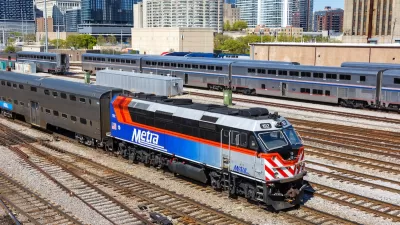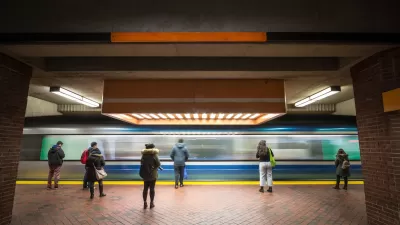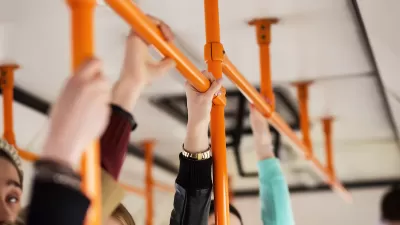The TAPS transit agency is severely distressed, and continuing to receive bad news about its finances.
Valerie Wigglesworth has been closely monitoring the sorry state of financial affairs of TAPS Public Transit, which serves communities in the North Texas counties of Collin, Clay, Cooke, Fannin, Grayson, Montague and Wise.
"The financial picture for TAPS Public Transit seems to be one step forward, two steps back," according to Wigglesworth's most recent report. That assessment came after an audit from the Texas Department of Transportation "that found problems with records submitted to the state agency for reimbursement between September 2013 and July 2015." The one step forward in this case, was a reimbursement from TxDOT that allowed TAPS to finish its November 6 payroll.
Other bad news from the article includes layoffs and a cancellation of a multi-year contract with the Texas Health and Human Services Commission. "Last week, the cities of Frisco and McKinney also voted to terminate their contracts with TAPS," adds Wigglesworth.
An article by Wigglesworth from September reported on the debts owed by the agency, owing $4 million at the time and "expected to end the fiscal year between $800,000 and $1.6 million in the red." At the time, the transit agencies woes were contributing to "missed rides, unpaid bills, and long waits," according to the article.
FULL STORY: TAPS Public Transit gets more bad news with TxDOT audit

Manufactured Crisis: Losing the Nation’s Largest Source of Unsubsidized Affordable Housing
Manufactured housing communities have long been an affordable housing option for millions of people living in the U.S., but that affordability is disappearing rapidly. How did we get here?

Americans May Be Stuck — But Why?
Americans are moving a lot less than they once did, and that is a problem. While Yoni Applebaum, in his highly-publicized article Stuck, gets the reasons badly wrong, it's still important to ask: why are we moving so much less than before?

Using Old Oil and Gas Wells for Green Energy Storage
Penn State researchers have found that repurposing abandoned oil and gas wells for geothermal-assisted compressed-air energy storage can boost efficiency, reduce environmental risks, and support clean energy and job transitions.

Updating LA’s Tree Rules Could Bring More Shade to Underserved Neighborhoods
A new USC study finds that relaxing Los Angeles’ outdated tree planting guidelines could significantly expand urban tree canopy and reduce shade disparities in lower-income neighborhoods, though infrastructure investments are also needed.

California's Canal Solar Projects Aim to Conserve Resources and Expand Clean Energy
California’s Project Nexus has begun generating electricity from solar panels installed over irrigation canals, with researchers and state agencies exploring statewide expansion to conserve water and boost clean energy production.

HHS Staff Cuts Gut Energy Assistance Program
The full staff of a federal program that distributes heating and cooling assistance for low-income families was laid off, jeopardizing the program’s operations.
Urban Design for Planners 1: Software Tools
This six-course series explores essential urban design concepts using open source software and equips planners with the tools they need to participate fully in the urban design process.
Planning for Universal Design
Learn the tools for implementing Universal Design in planning regulations.
Heyer Gruel & Associates PA
City of Moreno Valley
Institute for Housing and Urban Development Studies (IHS)
City of Grandview
Harvard GSD Executive Education
Salt Lake City
NYU Wagner Graduate School of Public Service
City of Cambridge, Maryland





























